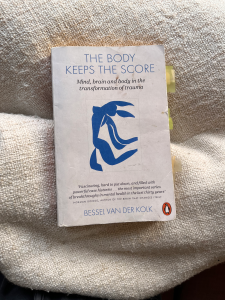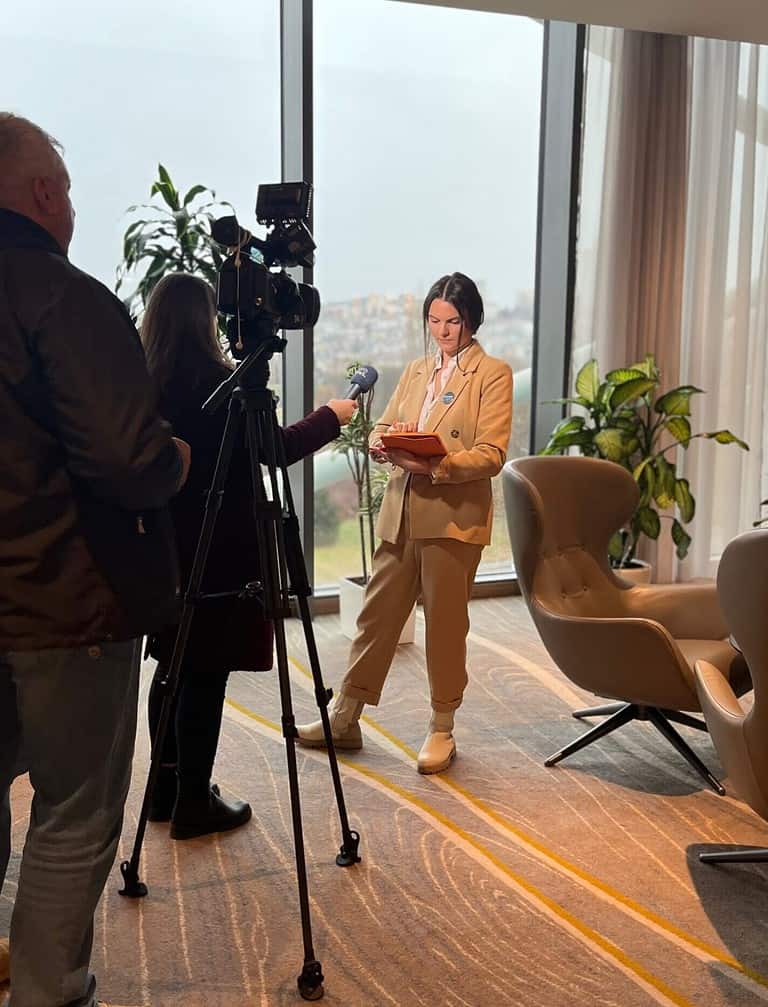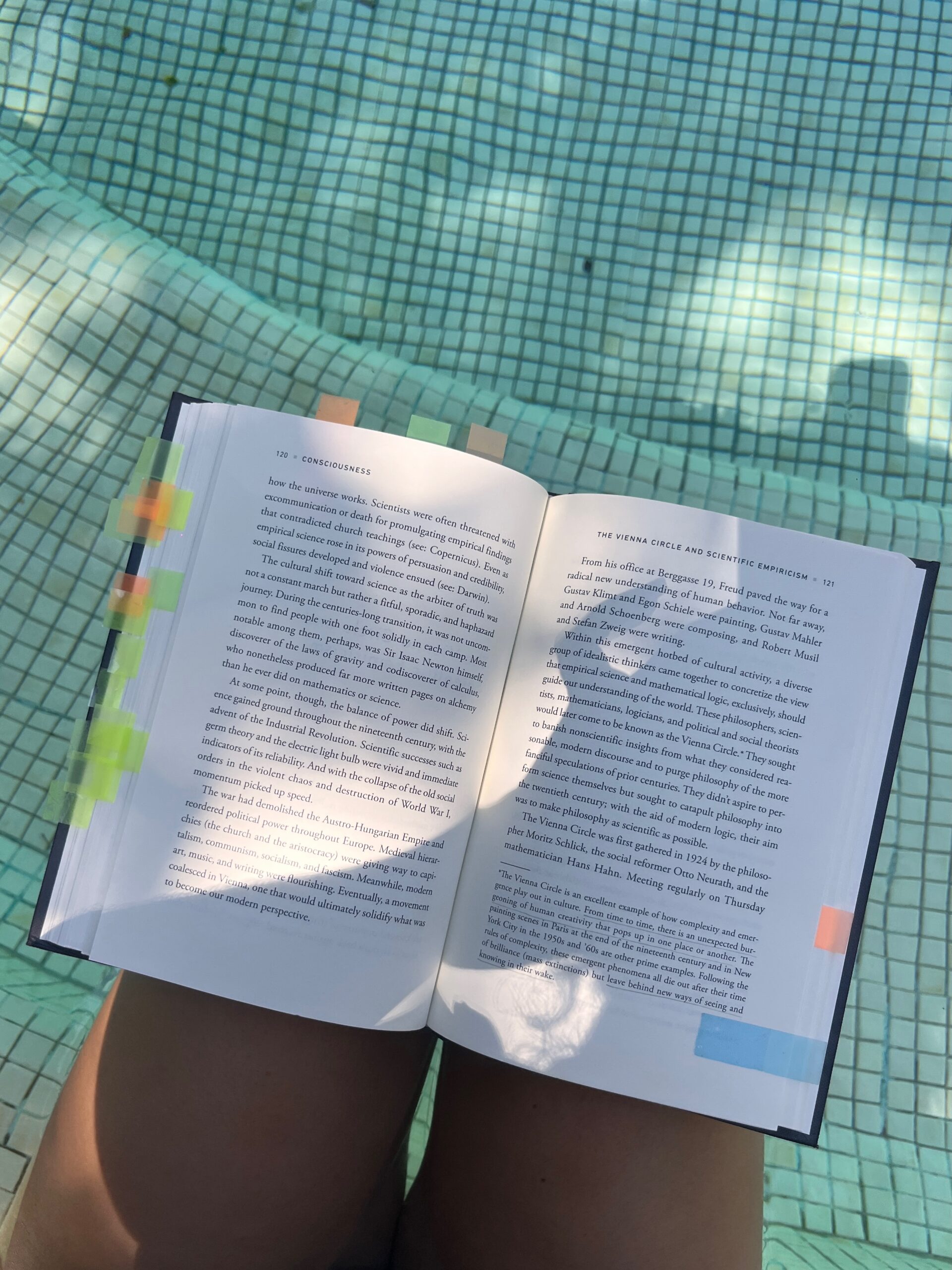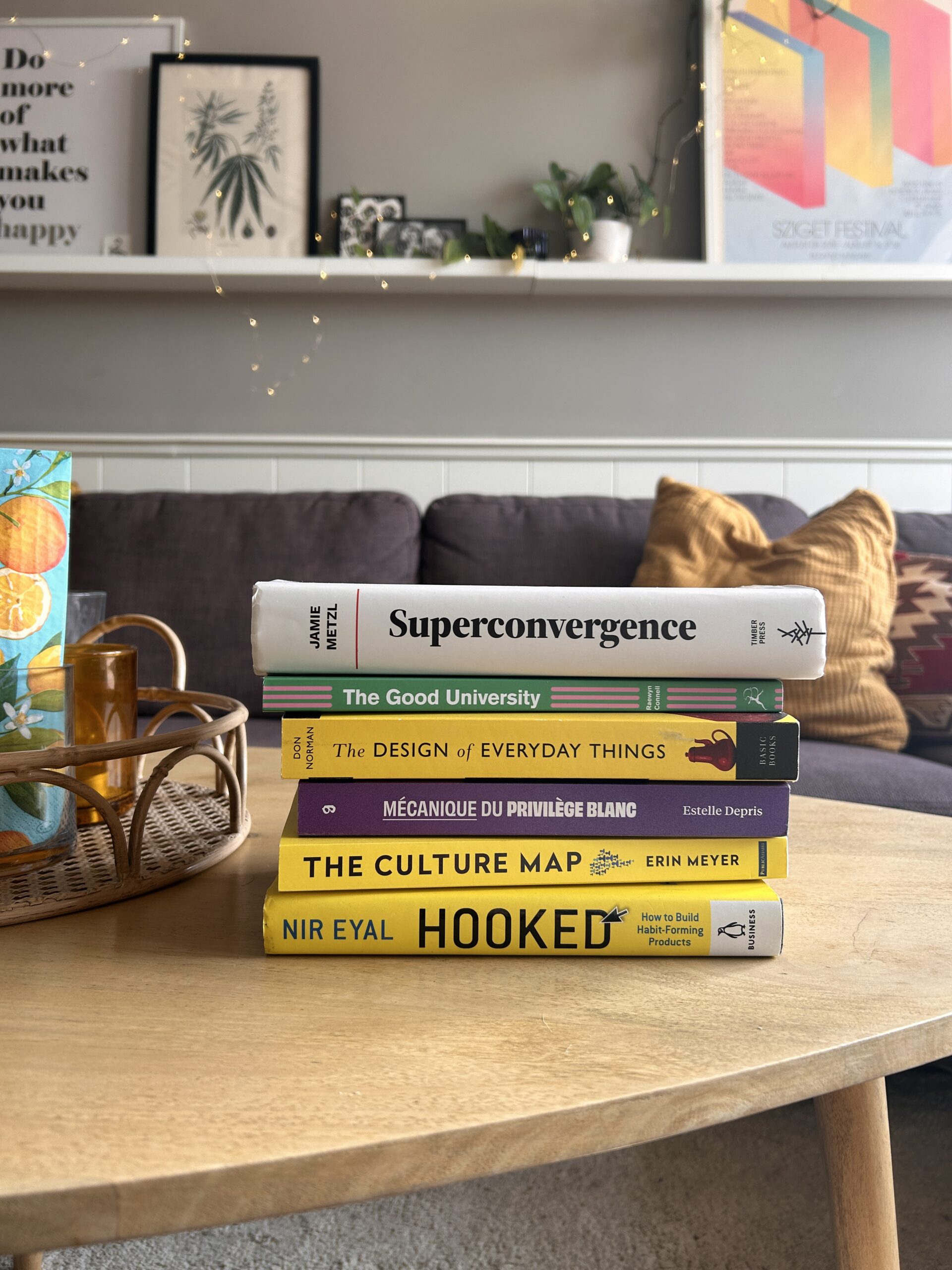The Wisdom of Insecurity is a short philosophical book covering themes such as happiness, spirituality, and mindfulness. Written in the 1950s, it provides surprisingly contemporary insights about the human condition, in particular its feeling of insecurity, anxiety, and pain. With references to greater forces of the universe – God, enlightenment, the present moment – Allan Watts shares his perspective about the meaning of life and how to exist in peaceful harmony with our environment, in other words, feeling safe.
The Illusion of Security
Watts argues that security is only illusory, at best temporary. We, as human beings, are constantly seeking explanations, purpose, and certainty in a world that is nothing but a complex, coincidental, and divine sequence of events. The core argument in The Wisdom of Insecurity is to let go of that constant need for safety, meaning, and certainty. “Paradox as it may seem, we (…) find life meaningful only when we have seen that it is without purpose, and know the ‘mystery of the universe’ only when we are convinced that we know nothing about it at all”.
He makes a powerful point which reminds me about the Dunning-Kuger effect, the cognitive bias that leads human beings with low skills and knowledge to overestimate their competences. In other words, the more you know, the more educated you are, the more intelligent you become, the more you realise how little you know in contrast to the immensity of knowledge there is. This leads very competent and smart people to underestimate their capacities. In sum, science shows us that confidence is not a sign of intelligence, quite the opposite. Watts’ words are right on point, 50 years before Dunning and Kruger’s study. He calls the reader to question their own biases and the sources of their beliefs.
Focusing on the Present Moment
Allan Watts covers themes such as sadness and happiness, pain and pleasure, exposing the beauty of both: “to strive for pleasure to the exclusion of pain is, in effect, to strive for the loss of consciousness “. The more pleasure and pain you experience, the higher your state of consciousness, or understanding of yourself and the world. Trusting your body and brain, following your instincts, is the only path forward.
Wanting to be constantly perfectly happy and secure is a contradiction in itself. In Watts’ perspective, nothing is ever-lasting, the universe is fluid and momentary, and we are divine beings getting lost in the process of time. Seeking “security” is therefore futile. Instead, the author recommends appreciating “the marvellous moment” of the present. Similarly to Eckhart Tolle in The Power of Now, Allan Watts preaches mindfulness as a means to access « consciousness », this deep understanding that we are one with the universe. Togetherness.
Read The Wisdom of Insecurity
In The Wisdom of Insecurity, Alan Watts argues that humans are too preoccupied with the past and future, and that this obsession with time creates anxiety and unhappiness. He suggests that individuals should instead focus on living in the present moment and accepting the inherent uncertainty of life in order to find true happiness and inner peace.
The World as One Unit
Watts criticises the impact of capitalism, academia, and politics, which polarise society and simplify our comprehension of the world:
If we must be nationalists and have a sovereign state, we cannot also expect to have world peace. If we want to get everything at the lowest possible cost, we cannot expect to get the best possible quality, the balance between the two being mediocrity. If we make it an ideal to be morally superior, we cannot at the same time avoid self-righteousness. — Allan Watts, The Wisdom of Insecurity
Our planet is much more complex than what meets the eye, and Watts is right in that regard. The theories and concepts we, human beings, create to make sense of the world can only grasp limited knowledge, because that is what they are: limited in scope, specific to a certain case, unique but generalisable. However we, human beings, often make the mistake of applying specific analysis to general situations when it’s not warranted.
Zooming Out and Embracing Complexity
Science tells us we should test, prove, be probably certain that our findings are « statistically significant ». And doing so inevitably leads to a micro-focus, a super-specialisation that isn’t enough to understand global affairs, not on its own. In The Wisdom of Insecurity, Allan Watts reminds us that the world is one unit, « one organic unity ». In a way, Watts makes a case for inter-disciplinarity: the study of one field through the prism of multiple disciplines (e.g. politics, economics, law, security, sociology, history).
Lewis Gaddis would have certainly qualified Watts of a « fox », a metaphorical representation of a strategist who can adapt to changing circumstances and navigate complex situations. The fox can synthesize information from a variety of sources with flexibility, which allows it to pursue its objectives in the face of uncertainty and ambiguity. The hedgehog, on the other hand, is characterized by its focus and single-mindedness in pursuing its objectives. In On Grand Strategy, Lewis Gaddis argues that successful strategists must possess both the qualities of a fox and a hedgehog, as outlined by the ancient Greek poet Archilochus.
According to Watts, by constantly avoiding uncertainty and seeking purpose, we miss that « it all exists for this moment ». Here, right now. It sounds crazy, right? But that’s exactly what patients treated for depression describe after going through psychedelic therapy. “People with depression might be locked into a period of excessive self-consciousness, but brain imaging data suggest that psilocybin could break such vicious cycles by reducing connectivity in the default mode network.” (Nature, 2022). Psylocybin, the active ingredient in magic mushrooms, would enlighten your mind about the connectedness of it all, the magical quality of now, the secrets of the universe beyond science, hereby supporting your mental wellbeing. So why aren’t we embracing this perspective?
Liberty: The Ultimate Wellbeing
Perpetually seeking pleasure, freedom, and love where it is not is the subject of the next chapter of The Wisdom of Insecurity. We cannot « plan » to be happy or successful. Instead, we should strive to wish others well. And Watts understand « being well » as liberty, not security. He reminds me of great thinkers who valued individual and collective freedom, such as Joh Studart Mill, Jean-Jacques Rousseau, Immanuel Kant, and Hannah Arendt, and Ralf Dahrendorf.
Dahrendorf was particularly interested in the relationship between power and freedom. He argued that power is necessary for social order, but that it can also be used to restrict individual freedom. Societies should thus be structured to limit the power of the state and promotes individual liberty, while also recognizing the importance of collective action to address social problems. Dahrendorf believed that democracy was the best system for achieving this balance.

The 5 Best Books for Personal Growth
There is no better way of starting a new journey than by reading a book that can change your perspective forever. I have selected the five best books for personal growth. They will provide plenty of inspiration, fascinating science facts, and mind-blowing tricks on your journey to happiness and success.
Lessons from Spirituality
In the last chapter of the book, Allan Watts reviews the theme of religion. Whilst he criticises the way science is conducted nowadays, he in fact compares it to religion. On the one hand, science studies how things happened in the past so it can help us predict the future. On the other hand, religion helps us understand the present moment. The same world, trying to understand in two very different ways. Watts calls the reader to unify these ways of thinking, once again praising insecurity as the most important expression of self-awareness:
The true splendor of science is not so much that it names and classifies, records and predicts, but that it observes and desires to know the facts, whatever they may turn out to be. — Allan Watts, The Wisdom of Insecurity
Watts’ argument reminds me of the book The Awakened Brain by Lisa Miller, which draws upon extensive research in neuroscience and psychology to support its claims about the benefits of spirituality for brain health and well-being. Miller argues that spiritual practices can promote positive brain development and emotional well-being. She also highlights the importance of a “spiritual awakening” for individuals seeking to overcome trauma and lead more fulfilling lives.
Accepting Uncertainty to Cure Anxiety
Overall, The Wisdom of Insecurity is a wonderful collection of spiritual reflections. Surprisingly contemporary, it posits that insecurity is both a disease and the cure to the anxiety of our world. The key is to accept it. Accept the uncertainty, the unpredictability, the unknown, embrace the immensity of knowledge, the infinity of possibilities, the present moment, and human society could harmoniously live on earth. Allan Watts might sound radical in some of its statements, but he is often misunderstood. His thesis is one of bigger-than-earth scale, and it may take some more time than others to understand his perspective depending on the environment they live in.
Personally, I’ve noticed that the more I am marvelled by the beauty of nature, the more I am perplexed about the complexity of our world, the more I find myself truly expanding my understanding of it. I love watching the stars, when they shine so bright in the middle of the jungle and you truly see the immensity of the sky. In these moments, I do see that I know absolutely nothing, I am just a lucky little soul on mother earth. I am insignificant and yet it feels so serendipitous to be part of such a divine world. I am peaceful. I am happy.
Written by Sophie L. Vériter

My Tools for Growth
Discover many articles like this one on my Growth Toolkit, a collection of resources to start or enhance your personal and professional growth journey whilst keeping your wellness in check, boosting confidence and critical thinking, as well as continuously expanding your skills and knowledge.



